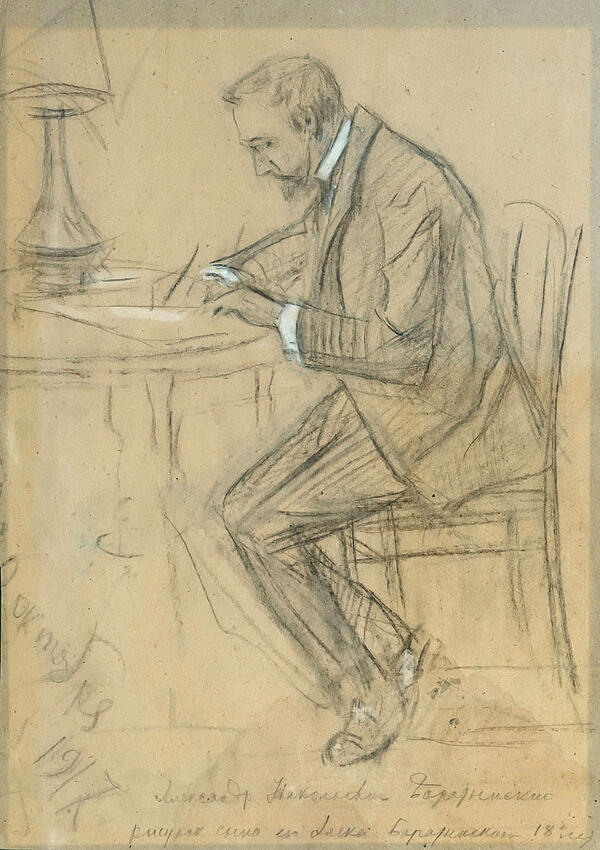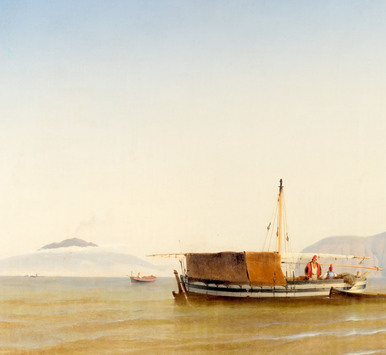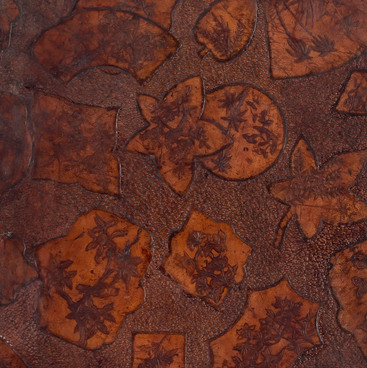Aleksander Boratynskiy (1867—1918) was a grandson of the poet Evgeniy Boratynskiy and orientalist Alexander Kazem-Bek. He chose public service for himself and eventually became a prominent county figure - a member of the III (third) State Duma, leader of the nobility of the Kazan and Tsarevokokshai counties.
Alexander Boratynsky is described in the memoirs of his sister Ksenia Boratynskaya as follows: ‘Idealistic, deeply and widely religious, cheerful, infinitely gentle and kind. He was in love with life, saw in people only the good, the light, and tried to justify, to forgive any deficiency in a person’.
He was married to Nadezhda Shipova and had three children: sons Dmitri and Alexander and daughter Olga. The latter became a poet and writer, widely known among Russian emigrants. Among her works one can recall novels ‘The Dawn of the Eighth Day’ and ‘The White Way. Russian Odysseus 1919-1923’.
During World War One Alexander Boratynskiy was commissioner of the Russian Red Cross Society. In 1916 he was one of the organizers of the exhibition ‘Artistic Treasures of Kazan’. He also released a poetic collection ‘As a souvenir to friends’ in 1914.
Alexander Boratynskiy was executed by shooting on the night of the 18th to 19th September, 1918 and buried at the Arskoye Cemetery in Kazan.
This portrait was done by his son Alec. He portrayed his father in a typical posture, which was well known to his family: ‘Dad was writing something at the table, with his back to the door, and he said mechanically, “Come in!”. From a lamp with a low lampshade a circle of light fell on a stack of papers, on his thick black hair, on the shoulders, slightly bent on work in typical concentration’.
Alec Boratynskiy was a talented artist and musician, but lived a very short life. In 1918, he volunteered for the White Army and went missing in action in the battle on the Tanyp River in Bashkiria. His aunt wrote in her memoires: ‘His great talents were lost. His sketches promised him the future of a great artist. He was as talented in music as well. He wrote “Requiem” on June 25, 1918 with the inscription: “For those who saved the Motherland and died in the struggle, for those who yearned for the Motherland and for those who understood nothing and were surprised to die, lying on the ground with black blots on their heads. This piece is for them”. What tragedy and significance in these words and what foresight…’
Alexander Boratynsky is described in the memoirs of his sister Ksenia Boratynskaya as follows: ‘Idealistic, deeply and widely religious, cheerful, infinitely gentle and kind. He was in love with life, saw in people only the good, the light, and tried to justify, to forgive any deficiency in a person’.
He was married to Nadezhda Shipova and had three children: sons Dmitri and Alexander and daughter Olga. The latter became a poet and writer, widely known among Russian emigrants. Among her works one can recall novels ‘The Dawn of the Eighth Day’ and ‘The White Way. Russian Odysseus 1919-1923’.
During World War One Alexander Boratynskiy was commissioner of the Russian Red Cross Society. In 1916 he was one of the organizers of the exhibition ‘Artistic Treasures of Kazan’. He also released a poetic collection ‘As a souvenir to friends’ in 1914.
Alexander Boratynskiy was executed by shooting on the night of the 18th to 19th September, 1918 and buried at the Arskoye Cemetery in Kazan.
This portrait was done by his son Alec. He portrayed his father in a typical posture, which was well known to his family: ‘Dad was writing something at the table, with his back to the door, and he said mechanically, “Come in!”. From a lamp with a low lampshade a circle of light fell on a stack of papers, on his thick black hair, on the shoulders, slightly bent on work in typical concentration’.
Alec Boratynskiy was a talented artist and musician, but lived a very short life. In 1918, he volunteered for the White Army and went missing in action in the battle on the Tanyp River in Bashkiria. His aunt wrote in her memoires: ‘His great talents were lost. His sketches promised him the future of a great artist. He was as talented in music as well. He wrote “Requiem” on June 25, 1918 with the inscription: “For those who saved the Motherland and died in the struggle, for those who yearned for the Motherland and for those who understood nothing and were surprised to die, lying on the ground with black blots on their heads. This piece is for them”. What tragedy and significance in these words and what foresight…’



